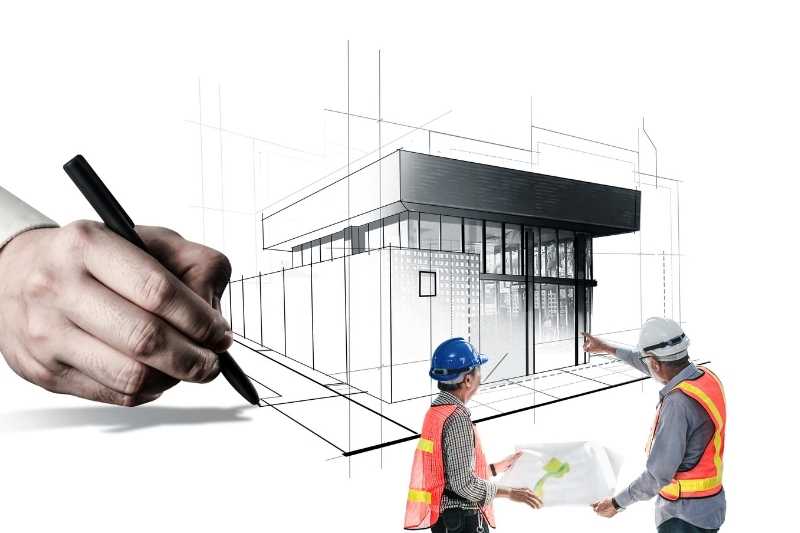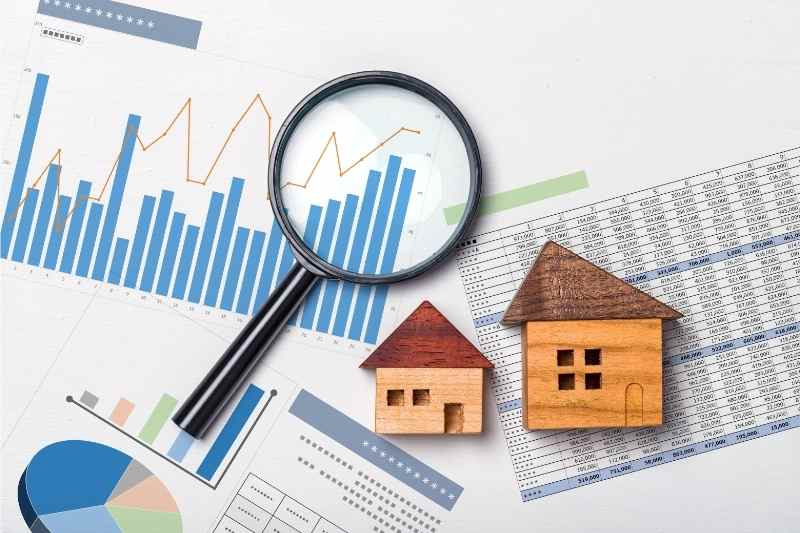Takeaways
- Real estate development encompasses the acquisition, development, and sale of properties and land.
- To become a real estate developer, you should earn a bachelor’s or master’s degree in a related field, get your real estate development license, and gather industry experience in any way you can.
- As a real estate developer, you can work independently or for a company.
- There are many career paths you can specialize in within the realm of real estate development, such as architecture and risk management.
- When starting as a real estate developer, it’s essential to network with industry professionals, identify your niche, create a checklist of goals, begin marketing as soon as a project commences, and stay up-to-date with industry trends.
- Ultimately, real estate development doesn’t require you to be rich or have a master’s degree. It merely requires the ingenuity that comes with navigating financial loans and project management.

The real estate industry is constantly growing and always in need of smart, savvy developers. However, becoming a real estate developer can seem like an overwhelming ambition, and getting started can be even more challenging.
This guide will show you how to become a real estate developer. We’ll explain what a real estate developer does, what you will need to do to become one, and the career paths you can explore.
This post will cover:
- What does a developer do in real estate?
- How to become a real estate developer
- Career paths for a real estate developer
What does a developer do in real estate?
A real estate developer is a person or company responsible for the construction, renovation, and/or sale of a property. They are responsible for both the development and management of a property until it is sold. Properties can include single-family homes, retail spaces, apartments, commercial office buildings, gated communities, mixed-use buildings, and industrial sites.
In real estate, a developer might buy land, finance real estate transactions, and collaborate with designers, architects, or construction workers to construct a new building. Most of the time, they’re also tasked with marketing and selling the new development.
As such, a real estate developer’s job description can include:
- Marketing properties to potential buyers via social media or building their own websites
- Finding guarantors to sign real estate guarantees
- Researching land and property to develop
- Budget management
- Working closely with architects
- Finding contractors
- Securing loans and other funding
- Negotiate real estate deals with owners and agents
Real estate developers can focus on specific aspects of property development, such as land acquisition. We’ll dive deeper into this when we talk about career paths for a real estate developer.
Watch and learn how to become a real estate developer:
Is real estate development hard?
Real estate development can be challenging, especially if you’re an independent developer. However, many real estate developers work for a company or organization, which reduces some of the stresses associated with the job and guarantees a more stable income and benefits.
Independent real estate developers stand to make a lot more money. However, that does include a lot more responsibility and risk on their ROI (return on investment).
Real estate developers must be:
- Highly organized
- Capable of working well with others
- Analytical
- Financially literate
- Expert researchers
- Savvy with real estate marketing or capable of finding a professional to do it for them
If all of those tasks and responsibilities sound achievable, then real estate development might be for you.

Is being a real estate developer a good job?
While it can be a challenging job, being a real estate developer is arguably a rewarding career. According to ZipRecruiter, the average annual salary for real estate developers in 2022 was $79,499.
However, real estate developers have the potential to make substantially more money, with the high end of this scale being $179,000 annually. But this all depends on how much work developers put into strategizing and making smart investments. Additionally, it depends on how much you’re willing to learn about investments, whether you want to invest in real estate waterfalls, and other factors.
Independent real estate developers will also have the freedom to set their own hours, though, again, this can change depending on their goals for financial gain.
How do real estate developers make money?
Real estate developers generally make money by purchasing land, developing a property on it, and then selling both the land and property. Developers are also known to flip properties, which includes buying an existing building and renovating it before selling it for a profit.
Watch how ButterflyMX works:
How to become a real estate developer
There are nearly 55,000 real estate developers in the United States, and just under two-thirds of the US population owns property. So, there’s a ton of opportunity for new real estate developers to thrive in their careers.
Becoming a real estate developer typically involves completing a real estate course and obtaining your license. But if you want to follow the best path toward becoming a successful developer, follow the steps below.
Steps to becoming a real estate developer include:
1. Earn a degree (or two)
A real estate developer degree is not necessary to become a developer, so no worries if you’ve already earned a wildly different bachelor’s degree. With that said, it’s certainly helpful if you receive a degree in a related field. Law, finance, and architecture degrees can be an even greater benefit.
Many real estate developers pursue a business degree in graduate school. An MBA related to real estate is a big advantage, not only in what you can learn, but in the relationships you may foster at school.
Like many industries, successful real estate development is often all about who you know. Your professors and fellow students can become great contacts throughout your career, especially when you’re first starting out.
Additionally, consider taking courses outside of academia and earning certificates to further enhance your knowledge of real estate development.
Seek out certificates such as:
- The NAIOP (National Association of Industrial and Office Parks) certificate of advanced study in real estate.
- SRS (Seller Representative Specialist) certification.
- The CCIM (Certified Commercial Investment Member) certificate.
- The GRI (Graduate Realtor Institution) designation.
2. Get licensed
Most US states require a real estate developer to have a real estate license associated with the state in which they’re working. Some states, such as California, allow you to use your license in other states, while others require various levels of recertification. This primarily relates to each state’s unique property laws.
Getting your license is as easy as signing up for a real estate certification course. This involves a total number of course hours that you complete in the classroom or online.
Next, you’ll need to take your real estate development exam. Exams vary by state, so make sure you study for your location-specific test. Further details, such as how many times you can retake the test and how often the test is offered, also vary by state.

3. Break into the industry
Breaking into the real estate industry can occur at any point in your education. You don’t necessarily need your real estate development license to start gaining hands-on industry experience. Fortunately, you have a lot of different paths you can take.
You can gain real estate industry experience by:
- Working as a real estate agent for buyers and sellers.
- Gaining an internship or working directly for an established real estate developer.
- Working as a property manager.
How long does it take to become a real estate developer?
On average, it can take roughly seven years to become a real estate developer.
However, it’s important to remember that you technically only need a high school diploma before you can get your real estate license. Everything else is just a bonus.
A typical real estate course to get your real estate license can take up to six months in person or around eight weeks online. Of course, the state you live in determines how long this course will take because each state has different requirements.
How to become a real estate developer with no experience
You have your education and your real estate development license. Now you want to gain experience.
Easier said than done, right?
Follow these key tips to become a real estate developer with no experience.
Tips for getting started:
- Social networking with industry professionals: Anybody, from a fledgling developer to one with decades of experience, is accessible through social media. Take care in curating your online presence and reach out to as many people as possible for guidance and leads.
- Find your focus. You should find your specialty as early in your career as possible. If it’s too early in your career to know whether you’re “good” at something, your specialty can be what you enjoy most.
- Set progressive goals. Begin with easily manageable goals, such as networking with a specific number of professionals each week. Create a real estate development checklist and hit your marks, steadily increasing your count over time.
- Research the market. The real estate market fluctuates seasonally, so it’s essential to stay informed. You should check property inventory, including gated community sales versus multifamily development, as frequently as possible.
- Market your project. Your marketing strategy starts the moment you choose which project to pursue. Provide updates and tell your intentions to everyone you encounter both in person and online while developing your property.
How to become a real estate developer with no money
You don’t need to be wealthy to become a successful real estate developer. Real estate developers who invest their own money have a slight advantage when it comes to being approved for a higher loan, but there’s also plenty of risk that comes with that.
As a real estate developer, you can both apply for commercial loans and work with groups of reputable investors, called real estate syndications. Having no money is okay, but you will need to forge relationships with these individuals and institutions to secure funding. Following our steps above on how to gain experience and come off as an expert is a huge advantage.

Career paths for a real estate developer
While a real estate developer’s general responsibilities may seem straightforward, there are no limits to which aspects of development you can specialize in. While some real estate developers seem to have their hand in every part of development, others prioritize what they’re good at.
Career paths you can follow as a real estate developer include:
- Architectural design
- Project manager
- Real estate sales associate
- Investment analyst
- Real estate broker
- Asset management specialist
- Consultant
- Risk officer
Many of the above roles fall under the umbrella of a real estate development company. While it can be enticing to be an independent real estate developer, you’ll have a better chance of specializing in something you’re passionate about in a team setting.






